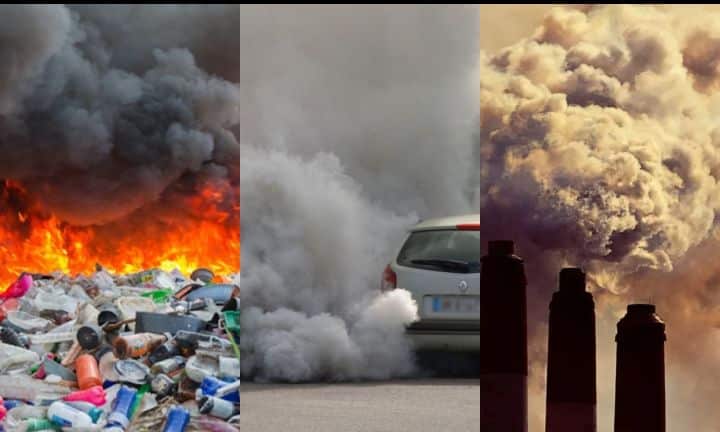A groundbreaking study has revealed a stark reality: air pollution is now the leading cause of death in Ghana, surpassing malaria, HIV/AIDS, and road accidents. The research, conducted by PSS Urbania Consult with support from the Clean Air Fund, estimates over 30,000 deaths annually are attributable to air pollution-related illnesses, including asthma, lung cancer, and cardiovascular diseases. This alarming figure underscores the urgent need for comprehensive action to address this growing public health crisis. The study’s findings paint a grim picture of air quality in Ghana, particularly in the Greater Accra Metropolitan Area. Air quality levels in many areas significantly exceed both national and international standards, posing a severe threat to the health and well-being of Ghanaians.
The study, conducted over a year, involved monitoring over 60 sites across the Greater Accra Metropolitan Area. Researchers collected data on particulate matter (PM2.5 and PM10), sulfur dioxide, and nitrogen dioxide. These pollutants, particularly the fine particulate matter, are known to penetrate deep into the lungs and contribute to a range of respiratory and cardiovascular problems. The research pinpointed several key sources of this pollution, including vehicle emissions, the open burning of waste, the use of firewood for cooking, pesticides from agricultural activities, and dust generated by road construction. These findings highlight the complex and multifaceted nature of the air pollution challenge, requiring a multi-pronged approach to mitigation.
The study identified several pollution hotspots within the Greater Accra Metropolitan Area, including Ablekuma Central, Ablekuma North, Ablekuma West, Adentan, Ablekuma South, Ashiedu Keteke, Okaikoi South, Ayawaso Central, Ayawaso East, Ayawaso North, Ayawaso West, Korle Klottey, La Dade Kotopon, La Nkwantanang Madina, and Okaikwe North municipalities. These areas experience particularly high levels of pollutants, placing residents at increased risk of developing health problems. The concentration of pollution in these areas underscores the need for targeted interventions to address specific local sources and vulnerabilities.
The study’s findings were presented at a high-level validation workshop for Air Quality Action Plans (AQAPs) developed for 13 metropolitan, municipal, and district assemblies (MMDAs) in the Greater Accra Region. The workshop brought together stakeholders from various government agencies, including the Ministry of Local Government, Chieftaincy and Religious Affairs, the Greater Accra Regional Coordinating Council, the National Development Planning Commission, and the Ghana Institute of Planners. The discussions focused on raising awareness about the severity of air pollution and developing strategic plans to address it. The emphasis on collaboration and strategic planning signifies a crucial step towards translating research findings into concrete action.
Key government officials and representatives from partner organizations emphasized the urgency of the situation and the need for swift action. Usama Iddrisu Samu, Director of Policy Planning, Monitoring and Evaluation at the Ministry of Local Government, highlighted the scale of the crisis, noting that air pollution-related deaths exceed those from malaria and HIV combined. He urged the immediate implementation of the developed action plans, emphasizing that clean air is not merely an environmental aspiration but a critical development priority. Jemima Lomotey, Director of Planning at the Regional Coordinating Council, speaking on behalf of the Greater Accra Regional Minister, pledged the region’s commitment to implementing the action plans and improving air quality. The commitment from high-level officials underscores the seriousness with which the government is approaching this issue.
Dr. Elvis Kyere Gyeabuor of the Clean Air Fund encouraged local ownership of the process, emphasizing the importance of long-term commitment beyond the lifespan of the initial grant funding. Dr. Lily Owusu of the National Development Planning Commission urged the integration of air quality measures into medium-term development plans, highlighting the disproportionate impact of pollution on vulnerable populations. Dr. Michael Mensah, Municipal Chief Executive of Ayawaso West, connected the issue to the Sustainable Development Goals, calling for collective innovation to build healthier and more resilient cities. These calls to action highlight the need for sustained effort, collaboration, and innovation to address the complex challenge of air pollution effectively. The study’s findings have firmly placed air pollution on the national development agenda, demanding concerted action from all stakeholders – local governments, policymakers, and citizens alike – to protect public health and ensure a sustainable future for Ghana.














